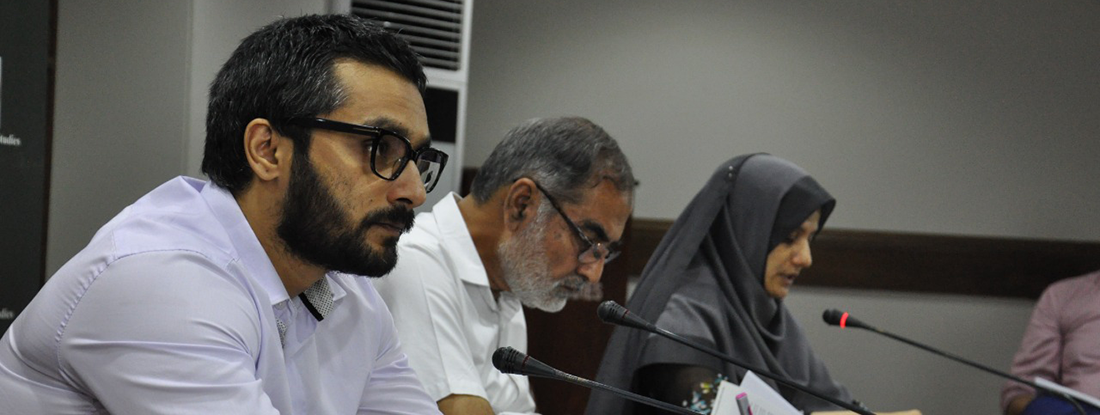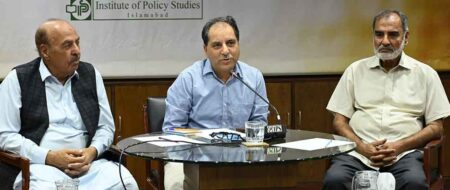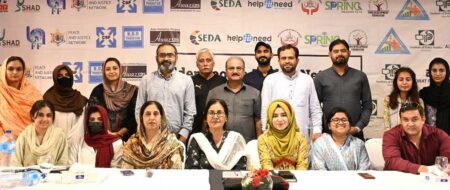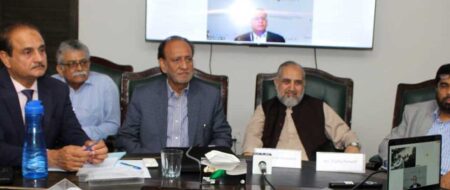‘India using every tactic to change demography of IOK’ – IPS-WGK
Tactics to change demographics of the occupied valley which have been a linchpin of the BJP’s Hindu-supremacist agenda in post-August 5 Indian Occupied Kashmir were denounced by speakers at the 15th meeting of Institute of Policy Studies-Working Group on Kashmir (IPS-WGK) on August 3, 2021.
The agenda of the meeting organized by IPS was to discuss Indian attempts to change the demography of Kashmir during the last two years. Among the speakers were Syed Abrar Hussain, former ambassador and vice chairman IPS, Iftikhar Gillani, a senior Kashmiri journalist, Farzana Yaqoob, former AJ&K minister and General Secretary IPS-WGK, Ambassador (r) Tajammul Altaf, senior research associate at IPS, Advocate Nasir Qadri, International Law Expert from Legal Forum for Oppressed Voices of Kashmir (LFOVK), and Naufil Shahrukh, GM Operations at IPS. The session was chaired by IPS Chairman Khalid Rahman.
It was observed during the discussion that under the new laws imposed by the Modi government, domicile certificates are being awarded to a number of individuals from outside the valley as any person who has studied or lived in the region for 15 years is now eligible for domicile. Even the children of Indian government employees who have served in IOK for ten years are eligible to purchase land and properties.
The speakers rued the fact that Indian army and paramilitary forces, which have already illegally occupied tens of thousands of acres of private and public land, have been given legal impunity against usurping and occupying any land which they deem ‘strategic’ under new laws.
Nasir Qadri opined that Urdu is no more the only official language of the valley as the government has added Hindi, Dogri, English and Kashmiri as other official languages. He chastised the government’s action of setting up the Jammu and Kashmir Industrial Development Corporation that can acquire any land in the disputed valley. The corporation, he added, can use the government to invoke a land acquisition law if so needed, placing it above the law as no court can take action against the corporation in this regard.
Commenting on the findings of the former Indian foreign minister Yashwant Sinha-led commission, Concerned Citizens Group, which visited the valley recently, Iftikhar Gillani maintained that the demand for restoration of special status of the valley echoed among the people of Jammu and Kashmir including Ladakh as per the report issued by the commission. He also said that Kashmiris termed the abrogation of Article 370 and 35A as imposition of Hindutva agenda of the Rashtriya Swayamsevak Sangh (RSS) in Kashmir.
The session was told that the Indian government is bringing officers from outside the valley amid very thin representation of Kashmiri Muslims in the bureaucracy to run the government machinery. Moreover, a panel headed by a top police officer will review cases of government employees in the IOK who could be sacked under a law in the Indian Constitution.
Under new laws, applications for government jobs will now undergo harsher scrutiny as applicants are directed to produce a comprehensive ‘satisfactory report’ from the Criminal Investigation Department (CID) for selection.
Regarding the new media policy, the experts said that now a mid-level bureaucrat will decide whether the news is ‘fake’ or passes the government’s test. The new policy, as mentioned by the speakers, will deprive newspapers and publications of government advertisements for non-compliance. Furthermore, several journalists have been booked under an anti-terror law as punishment.
Abrar Hussain was of the view that abrogation of Article 370 and 35A was indicative of Indian designs to change the demography of IOK as 1.8 million bogus or fake domiciles have already been issued till February 2021. He emphasized the need for action on part of Pakistan to unveil nefarious Indian designs and show to the world the real face of India.
Concluding the session, Khalid Rahman underscored that the resistance sentiment among Kashmiris still prevails despite coercive actions and a narrative war is going on to create discouragement among the people of Kashmir across the LoC. He perceived the beginning of a new phase of struggle in IOK in the post-August 5 scenario. He warned against Indian designs of opening embassies of foreign countries in the valley to give legitimacy to its claims on IOK, and urged the government of Pakistan to expedite its actions on the diplomatic front.












